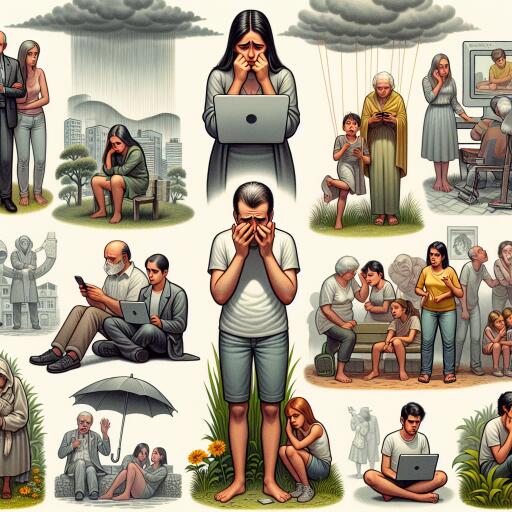Many in Brazil Feel a Disconnect After Popular Social Media Platform Goes Dark
In an unexpected turn, the social media landscape in Brazil encountered a significant upheaval over the weekend, leading to widespread reactions across the country. A move to block a major social media entity by the authorities has left users scrambling for alternatives and questioning the implications on freedom of speech and information dissemination.
The blockade began early Saturday, disrupting the routine of millions of Brazilians who leverage the platform for news, entertainment, and communication. The decision follows a prolonged dispute between the platform’s owner, billionaire entrepreneur Elon Musk, and Brazilian authorities regarding content moderation and the presence of a legal representative in the country.
Brazil stands as one of the largest markets for the social media site, which serves as a critical space for political discourse, humor, and pop culture. Its absence was immediately felt across the nation, with users expressing their disorientation and seeking refuge in alternative platforms. Among the alternatives gaining traction is Bluesky, which reported a surge of approximately 200,000 new Brazilian users in just a couple of days. Threads, an app developed by Instagram, also emerged as a popular choice, albeit with mixed reactions regarding its algorithm and content curation.
The migration to other platforms has been a testament to the adaptability of Brazilian social media users, who have historically transitioned from platforms like Orkut to newer spaces with ease. However, the current shift isn’t just about finding new social media homes; it’s intricately tied to broader concerns about freedom of expression and the regulatory environment in Brazil.
The suspension of the platform has ignited debates among politicians, celebrities, and everyday users. Some view the move as a necessary step to enforce legal and regulatory compliance, while others decry it as an infringement on free speech, drawing parallels with authoritarian regimes.
In response to the ban, notable figures, including international pop stars and local politicians, voiced their opposition and concerns. The discourse extends beyond the digital realm, touching on issues of legal sovereignty, international business confidence, and the fundamental rights of citizens to access information.
Legal experts and organizations have raised questions about the enforcement of the ban, particularly the imposed fines on individuals using virtual private networks (VPNs) to bypass restrictions. The Brazilian Bar Association called for a review, emphasizing the need for due process and the right to a full defense before imposing sanctions.
The sentiment among Brazilian users is one of disappointment and frustration, highlighting the crucial role social media plays in contemporary society for staying informed and connected. For many young Brazilians, platforms like the now-blocked site are primary sources of news and entertainment, rendering traditional media outlets secondary.
As Brazil navigates through this period of adjustment and uncertainty, the global community watches closely. The developments underscore the delicate balance between regulation and freedom on the internet, a challenge that continues to evolve with the digital age.
The situation remains fluid, with ongoing discussions between social media companies, the Brazilian government, and civil society about the future of digital communication and information sharing in the country. As Brazilians adapt to their new digital environment, the world is reminded of the power and pervasiveness of social media in shaping public discourse, policy, and personal lives.









